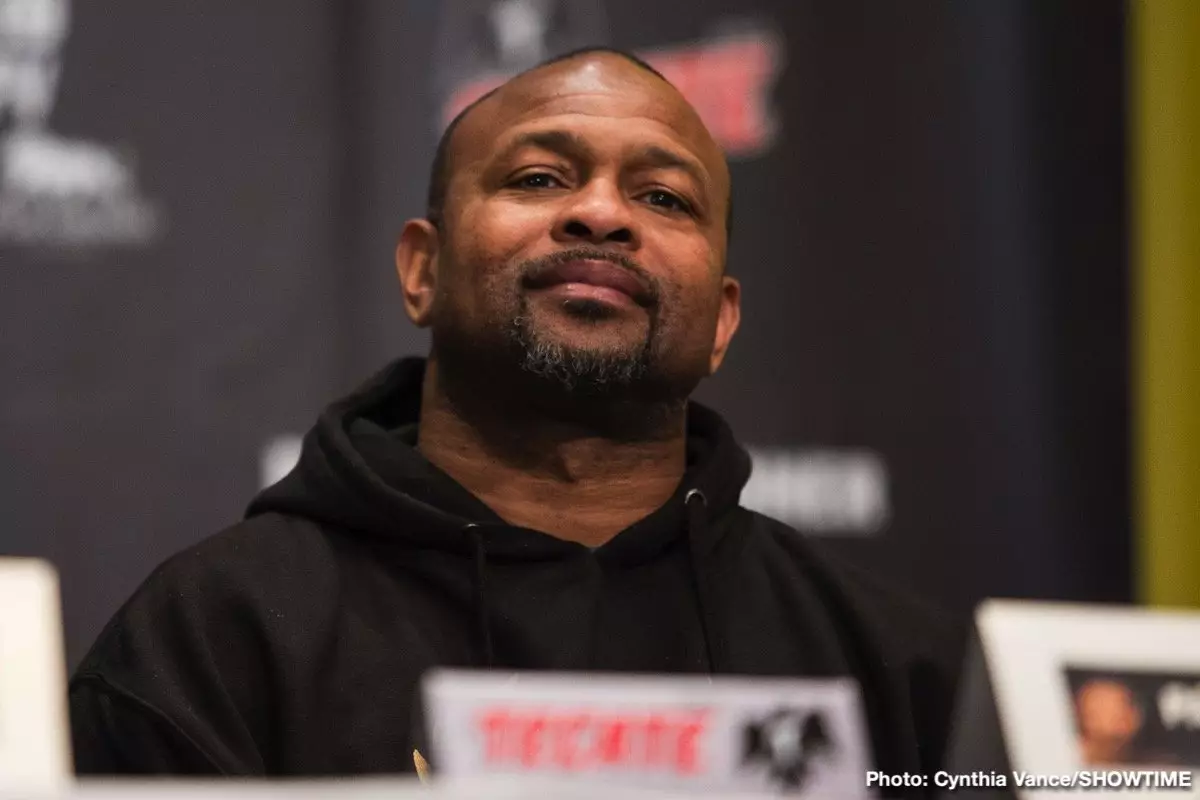In the world of boxing, few topics spark as much fervent debate among fans and pundits alike as the hypothetical matchups between all-time greats. The podcast “All The Smoke,” hosted by the revered Andre Ward, recently provided a thrilling platform for such discussions when it featured the legendary Roy Jones Jr. With both fighters being Hall of Famers, their conversation brimmed with insights, but one topic stood out: the elusive “dream fights” that never came to be. Among these mythical clashes, the thought of Roy Jones facing off against the formidable Gerald McClellan epitomized the essence of boxing’s “what if” scenarios.
Jones and McClellan never fought as professionals, yet their paths crossed in amateur competitions, with McClellan emerging victorious. However, the stakes would have been significantly different in a professional setting, where the level of strategy, pressure, and stakes evolves entirely. Both fighters entered the ring with their unique styles—Jones with his unparalleled speed and agility, and McClellan with his devastating power that could turn the tide in a split second. Analyzing how these boxing icons would have fared against each other forces us to envision the chess match that would have unfolded.
The Art of Strategy in Hypothetical Showdowns
When Ward quizzed Jones about this tantalizing matchup, it wasn’t merely speculation; it was a peek into the minds of two warriors who understood the intricacies of ring strategy. Jones articulated a fascinating game plan: to mitigate McClellan’s most lethal weapon—the right hand. He described the importance of maintaining distance, stating, “You cannot get hit with that right hand in the first four rounds.” This insight provides a window into the fighters’ mental preparedness; it wasn’t solely about physical ability but rather tactical execution. Jones’s approach mirrored how great fighters adapt to minimize their opponents’ strengths while maximizing their own.
What makes this conversation even more engrossing is the acknowledgment that McClellan’s right hand was not just a punch but a psychological weapon. Jones insightfully noted that McClellan relied too heavily on that singularly destructive punch. This reliance likely would have made McClellan less versatile in adapting his strategy if the fight didn’t unfold according to his expectations. Jones’s belief that he could draw out that punch was a brilliant point, revealing how he understood ring psychology and the importance of controlling the pace of a bout. In essence, he envisioned not just a physical fight but a battle of wits—a true hallmark of elite boxing.
The Tragic Reality of Gerald McClellan
The conversation inevitably veered towards the somber reality that shadowed McClellan’s career. His 1995 bout against Nigel Benn, which led to severe injuries, remains one of boxing’s darkest moments. The consequences of that fight have become an indelible part of his narrative, forever marking the what-could-have-beens of his career. Boxing is a brutal sport, and the stakes are incomprehensibly high, often leading to harrowing outcomes.
Jones has continued to support McClellan, highlighting the sense of camaraderie that boxing can inspire even among fierce competitors. It serves as a reminder that behind the gloves and punches lie human stories of struggle and resilience. This connection underscores the importance of encouraging awareness regarding the welfare of athletes, particularly in a sport as unforgiving as boxing. Such instances offer an opportunity for the boxing community to reflect on the responsibilities of promoting the safety and well-being of its athletes.
The Mythology of Boxing: Beyond the Ring
What makes dream matchups like Jones versus McClellan so captivating isn’t just the prospect of a fight, but the stories, legacies, and personal journeys behind these athletes. Each hypothetical bout acts as a capsule for understanding the evolution of boxing tactics, styles, and philosophies. The legacies of these fighters were crafted not only through their victories but through their interactions, relationships, and the mutual respect they share.
In a sport where careers can be defined by a single moment, the absence of an anticipated clash transforms into a source of endless conjecture and fascination. The “what ifs” resonate with fans because they encapsulate a rivalry not only between pugilists but between eras, styles, and ideologies within the sport. It’s an enduring testament to the beauty and tragedy of boxing—where battles can galvanize heroes, and dreams can turn into bittersweet realities.


Leave a Reply